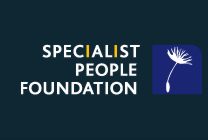| Autistic Workers For Software Testing |
| News | |||
| Written by Sue Gee | |||
| Saturday, 25 May 2013 | |||
|
After a successful pilot scheme in India, multinational software company SAP aims to train hundreds of people with autism as software testers and developers. The recruitment policy will be extended to Germany, Canada and the US this year and is intended to ensure that by 2020 1% of SAP's global workforce would be people with autism spectrum disorders (ASD), a proportion that reflects the prevalence of autism in the world population. SAP's initiative is being undertaken in partnership with Specialisterne, part of The Specialist People, a Danish non-profit organization, founded by Thorkil Sonne when his own son was diagnosed with autism.
According to the Specialisterne website: The traits that usually exclude people with autism from the labor market are the very traits that make them valuable employees ... such as attention to detail, zero tolerance for errors and a persistence to get the job done. We don’t see them as people with an autism diagnosis; rather, we see them as true specialists, which is why we refer to them as “specialist people”. SAP’s global head of HR, Luisa Delgado said: "With Specialisterne, we share a common belief that innovation comes from the 'edges.' Only by employing people who think differently and spark innovation will SAP be prepared to handle the challenges of the 21st century." The first pilot, at SAP Labs Bangalore, involved hiring six autistic people as as software testers for SAP Business Suite applications. SAP's press release reports that as a result the team has increased its productivity and cohesiveness in key areas, while Anka Wittenberg, SAP's chief diversity and inclusion officer, commented: "It really helped to improve the climate and culture in the team. The turnover rate went down, employee engagement went up, and we got really positive feedback." Thorkil Sonne hopes that other IT companies will be encouraged to partner with Specialisterne and help fulfill his vision of creating one million jobs globally for people with autism and related conditions such as ADHD, ADD, OCD and Tourette’s Syndrome. “SAP is the first multinational company to partner with us on a global scale. The partnership will position SAP as thought leader and motivate the ecosystem to follow its example.” Anka Wittenberg described SAP's initiative as a "Win-Win situation" and it is easy to appreciate why. It is estimated that in the United States autism affects 1 in every 88 children and 1 in every 54 boys and other statistics suggests that the majority of those with such a diagnosis fail to find work. The biggest barriers for those with a form of ASD are the soft skills of working with other people - skills that are usually an important part of the interview process. The partnership between SAP and Specialisterne overcomes these hurdles by introducing alternative recruitment procedures and providing mediators between the workers and their employers and colleagues, for instance to help them with the challenges of communication or the stresses of working under time pressure. This in turn gives SAP access to a large pool of talent that is ideally suited to a range of demanding and meticulous tasks. More InformationSAP to Work With Specialisterne to Employ People With Autism Related ArticlesNAO Works With Autistic Children
To be informed about new articles on I Programmer, install the I Programmer Toolbar, subscribe to the RSS feed, follow us on, Twitter, Facebook, Google+ or Linkedin, or sign up for our weekly newsletter.
Comments
or email your comment to: comments@i-programmer.info
|
|||
| Last Updated ( Saturday, 25 May 2013 ) |


